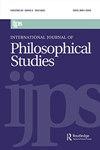Emotional Gaslighting and Affective Empathy
IF 0.6
3区 哲学
0 PHILOSOPHY
INTERNATIONAL JOURNAL OF PHILOSOPHICAL STUDIES
Pub Date : 2022-05-27
DOI:10.1080/09672559.2022.2121894
引用次数: 1
Abstract
ABSTRACT Gaslighting is a form of manipulation that undermines a target’s confidence in their own cognitive faculties. Different forms of gaslighting can be distinguished according to whether they undermine a target’s confidence in their emotional reactions, perceptions, memory, or reasoning abilities. I focus on ‘emotional gaslighting’, which undermines a target’s confidence in their emotional reactions and corresponding evaluative judgments. While emotional gaslighting rarely occurs in isolation, it is often an important part of an overall gaslighting strategy. This is because emotions can help us to understand the evaluative aspects of our situation and thus put us in a position to protest wrongs, which is a context in which gaslighting frequently occurs. I argue that affective empathy constitutes an important antidote to emotional gaslighting. Affective empathy can lead to endorsement of a target’s emotional reaction as appropriate to their situation and agreement with the corresponding evaluative judgment. When it leads to endorsement, affective empathy can counteract the effects of emotional gaslighting because it reassures a target in their ability to make evaluative judgments based on their emotional reactions. Because of its opposing effects, affective empathy with the victim thus constitutes an important intervention to emotional gaslighting on the part of third parties.情感煤气灯和情感共情
摘要煤气灯是一种破坏目标对自身认知能力信心的操纵方式。不同形式的煤气灯可以根据它们是否会破坏目标对其情绪反应、感知、记忆或推理能力的信心来区分。我关注的是“情绪照明”,这会破坏目标对其情绪反应和相应评估判断的信心。虽然情绪化的煤气灯很少单独出现,但它通常是整体煤气灯策略的重要组成部分。这是因为情绪可以帮助我们理解我们处境的评估方面,从而使我们能够抗议错误,而在这种情况下,煤气灯经常发生。我认为,情感移情是情绪失控的重要解药。情感移情可以使目标的情绪反应与他们的处境相适应,并与相应的评估判断相一致。当它导致背书时,情感同理心可以抵消情绪照明的影响,因为它让目标能够根据自己的情绪反应做出评估判断。由于其相反的影响,与受害者的情感移情因此构成了第三方对情感点燃的重要干预。
本文章由计算机程序翻译,如有差异,请以英文原文为准。
求助全文
约1分钟内获得全文
求助全文
来源期刊

INTERNATIONAL JOURNAL OF PHILOSOPHICAL STUDIES
PHILOSOPHY-
CiteScore
0.90
自引率
0.00%
发文量
29
期刊介绍:
The International Journal of Philosophical Studies (IJPS) publishes academic articles of the highest quality from both analytic and continental traditions and provides a forum for publishing on a broader range of issues than is currently available in philosophical journals. IJPS also publishes annual special issues devoted to key thematic areas or to critical engagements with contemporary philosophers of note. Through its Discussion section, it provides a lively forum for exchange of ideas and encourages dialogue and mutual comprehension across all philosophical traditions. The journal also contains an extensive book review section, including occasional book symposia. It also provides Critical Notices which review major books or themes in depth.
 求助内容:
求助内容: 应助结果提醒方式:
应助结果提醒方式:


